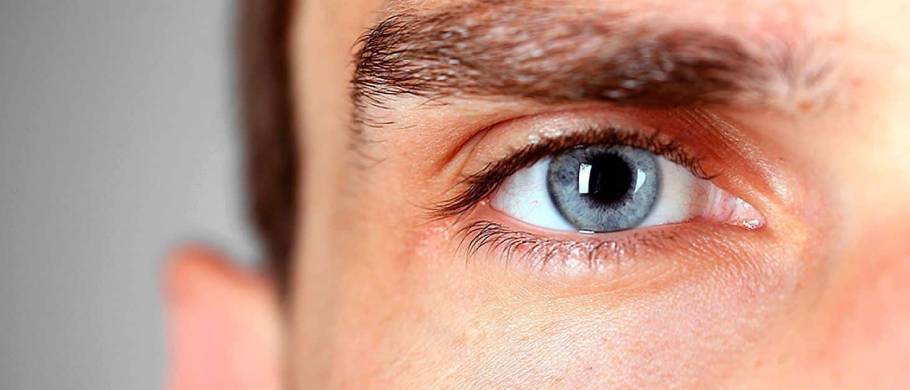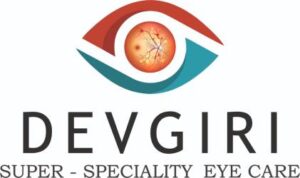What is Glaucoma?
Glaucoma is a serious eye disease caused by increased fluid pressure within the eye, which can damage the optic nerve that transmits images to the brain. One of the leading causes of irreversible blindness, the estimated number of cases of glaucoma in India is 12 million. This is around one fifth of global burden of glaucoma.
Glaucoma is known as the “silent thief of sight” as it is a symptomless disease, and people usually do not realize that they are suffering from glaucoma unless they visit the ophthalmologist or have reached an advanced stage of disease. If undiagnosed and untreated, glaucoma can lead to irreversible loss of vision and even cause blindness. Though the disease is not curable, the progress of glaucoma can be halted and total blindness can be prevented if it is detected early.
How Glaucoma Affects Vision?

In glaucoma the fluid pressure inside the eye increases, and this leads to progressive damage of the optic nerve, resulting in a gradual loss of vision. Initially, the loss of vision starts from periphery and progressively affects the central vision. The central visual acuity is affected only in the advanced stage.
The front half of the eye is filled with a clear fluid known as the “aqueous humor”. This fluid is continuously produced and constantly flows in and out of the eye, maintaining a steady pressure inside the eye. If there is either reduced drainage or excessive production of this fluid, the pressure in the eye will increase.
This increased eye pressure, if left untreated, can damage the eye (optic) nerve and cause permanent vision loss. Not everyone with high eye pressure will develop glaucoma, and some people with normal lly affects both eyes, though one may be more severely affected than the other. Unfortunately, the damage to the eye nerve due to glaucoma is irreversible and the loss of vision cannot be reversed. However, this condition can be halted and the remaining vision can be retained if glaucoma is diagnosed on time and appropriate treatment is started.
Glaucoma Preventation
In today’s world, people are quite aware about how lifestyle choices affect our overall health, and the same goes for glaucoma. Lifestyle choices can, to some extent, influence eye pressure and affect the risk of developing glaucoma, but there aren’t enough proven studies about the same in glaucoma patients. However, a shift towards a healthier lifestyle makes for an overall positive change.
- Exercise – Research indicates that regular exercise and an active lifestyle can help reduce their risk of glaucoma. Activities which raise your pulse by 20 to 25, like walking briskly, can help reduce IOP. The more number of steps a person walks throughout the day, less likelihood of an increase in IOP. Aerobics is known to cause a temporary decrease in the intraocular pressure but it has not been tested in glaucoma patients. Swimming reduces vulnerability of the optic nerve to an increase in the intraocular pressure.
- Diet – Various studies have been undertaken to study the role of diet in glaucoma. A diet rich in green leafy vegetables is supposed to lower the eye pressure. Dietary nitrates in green leafy vegetables lowers risk of developing open angle glaucoma.
- DHA (docosahexanoeic acid) is an omega- 3 fatty acid and it is helpful in preserving a healthy retina and lowering the IOP. Rich sources of DHA such as salmon, shellfish, tuna should be consumed twice or thrice a week. If its natural addition to the diet is not possible, DHA supplements in the form of fish oil supplements can be taken.
- A diet rich in lutein and zeaxanthin helps in lowering intraocular pressure. It avoids oxidative damage to the optic nerve. Spinach, broccoli and sprouts are rich sources of lutein and zeaxanthin.
- Antioxidants provide nutrients and strengthen the muscles and nerves in the eye. Rich sources of antioxidants are blueberries, grapeseed extract, goji berries, pecan nuts and cranberries.
How To Reach Us?
Dr. Pallavi Giri is a trusted Eye Specialist in PCMC, Pune. She has made many happy her journey as a Eye Specialist. At Devgiri Memorial Hospital you will get all the necessary medical treatment. Our advanced approach for our patient treatments make us unique.
The appointment process at Devgiri Memorial Hospital PCMC Pune is very simple. You can directly call on 09657002695. Also with the help of the “Book an Appointment” Form you can book your appointment by just filling in the basic information. We will contact you via email or phone call to confirm your appointment.



